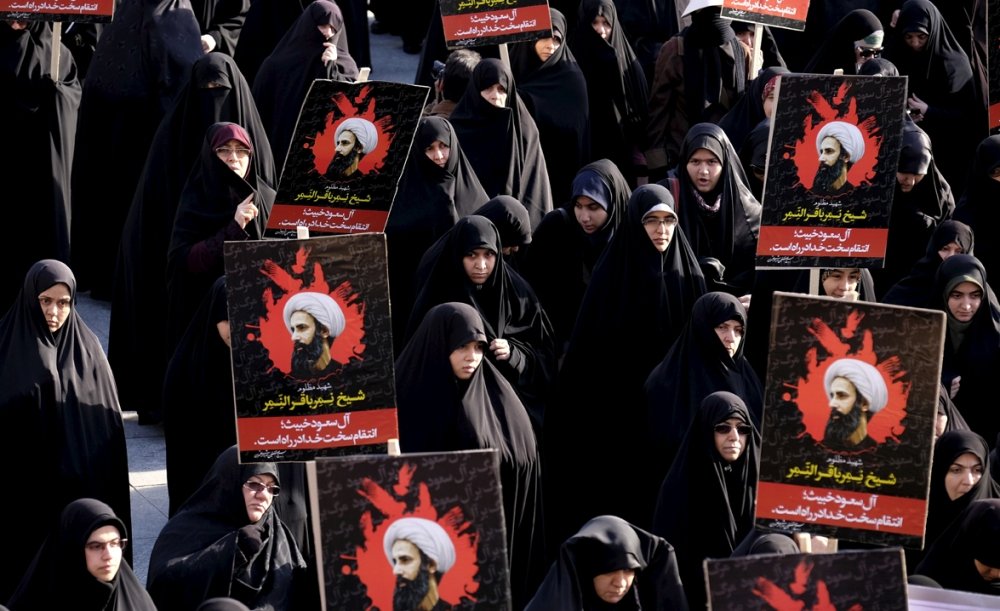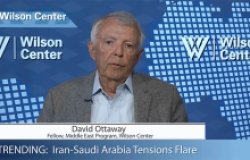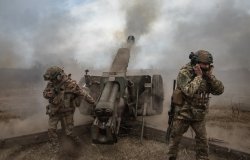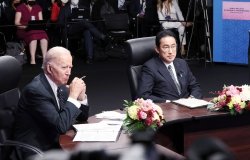Fallout From Saudi Cleric’s Execution Underscores Mideast Challenges
It would be irrational to conclude that U.S. actions and inactions hadn’t contributed to the messes in the Middle East. But the region’s challenges are rooted in internal, religious, and sectarian problems that are not amenable or conducive to U.S. military power or political persuasion; and they are spread among allies who have their own needs and agendas. Three recent events underscore this.

It would be irrational to conclude that U.S. actions and inactions hadn’t contributed to the messes in the Middle East. But the region’s challenges are rooted in internal, religious, and sectarian problems that are not amenable or conducive to U.S. military power or political persuasion; and they are spread among allies who have their own needs and agendas. Three recent events underscore this.
Saudi Arabia executed 47 individuals convicted of terrorism on Saturday, including a prominent Shiite cleric charged with trying to overthrow the kingdom. The executions, which included beheadings, were designed to signal to Sunni jihadis and Shiites—those pro-Iranian or not—that Saudi Arabia will brook no internal dissent or challenges from abroad. Most of those killed were associated with al Qaeda and accused of plotting attacks on the kingdom—a sad irony given that the Saudis have been supporting radical jihadis in Syria against the Assad regime.
The execution of Shiite cleric Nemer al-Nemer on top of the Saudis’ expensive and largely unsuccessful military campaign against the Iranian-backed Houthi rebels in Yemen will deepen the sectarian rift between Sunnis and Shiites—and inflame the regional battle between Iran and Saudi Arabia. Already, protesters ransacked the Saudi embassy in Tehran and Iranian officials have pledged that Saudi Arabia would face “the divine hand of revenge.” The Sunni-Shiite divide is driven by a struggle for political control in a variety of arenas that the U.S. is trying to stabilize—primarily, Syria and Iraq. Unless Saudi-Iranian tensions abate, Washington has no chance of winning the war against ISIS or ameliorating sectarian tensions in Iraq or Syria. Right or wrong, the Saudis are going their own way. The U.S. will be left to pick up the pieces.
But whatever responsibility U.S. action or inaction bears for the state of the Middle East, it pales next to that of a region that lacks leadership, representative institutions, moderate ideologies, a commitment to functional governance, and a willingness to face its problems.
An Obama administration official cautioned, with good reason, on Saturday that Iraqi forces’ recent victory against ISIS in Ramadi wasn’t a turning point. The military campaign masks a variety of local agendas and motives by key actors that reflect the problems ahead and the illusion that Iraq can be unified. Iraq’s powerful pro-Iranian Shiite militias are carving out whole areas where they are determined to preserve their dominance and prevent Sunni resurgence. Iraqi and Syrian Kurds are staking out territorial gains. In Syria, intervention by Russia and Iran will ensure that Alawites maintain control of key coastal areas whether or not Bashar al-Assad remains in power. U.S. hopes to make Iraq and Syria whole again will be undermined by local realities and regional actors it exercises little influence over.
The final event, reported in the New York Times this weekend, reflects a trend that has been building for some time: A variety of jihadi groups, including ISIS and al Qaeda affiliates, are cooperating and establishing a serious presence in North Africa.
Empty and ungoverned spaces and proximity to Europe combine to provide sanctuary and relevance to Islamist extremists, who are using their bases to spread jihad deeper into Africa. This expansion shows the limitations of U.S. and coalition military power and how, without effective governance, there is little hope that these groups can be destroyed. At best, they can be contained for a time. The U.S. and its allies are likely to find themselves in a global game of Whack a Mole—checking jihadi groups in some areas and seeing them pop up in others.
To hear Republican and Democratic candidates talk—if only George W. Bush hadn’t invaded Iraq. . . . If only Barack Obama hadn’t left too soon. . . . If only the U.S. had deployed more forces against Islamic State. . . . If only there were a “no-fly” zone in Syria—one might think the fundamental problem is a lack of U.S. leadership.
But whatever responsibility U.S. action or inaction bears for the state of the Middle East, it pales next to that of a region that lacks leadership, representative institutions, moderate ideologies, a commitment to functional governance, and a willingness to face its problems.
The opinions expressed here are solely those of the author.
This article was originally published in the Wall Street Journal's Think Tank blog.
About the Author


Middle East Program
The Wilson Center’s Middle East Program serves as a crucial resource for the policymaking community and beyond, providing analyses and research that helps inform US foreign policymaking, stimulates public debate, and expands knowledge about issues in the wider Middle East and North Africa (MENA) region. Read more











